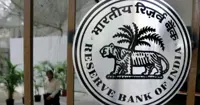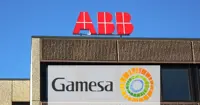D&B spikes Australia’s 2009 growth to -0.2 per cent
08 Apr 2009
The Dun and Bradstreet (D&B) Global Economic & Risk Outlook Report has revealed a collapse in world trade, particularly in the Asia-Pacific region, putting Australia at risk.
The report has revealed that 70 countries have had their risk rating downgraded in the past six months, including Australia's key trading partners China, South Korea, Hong Kong and Vietnam.
This has resulted in D&B lowering its growth forecast for Australia in 2009 from 0.5 per cent to -0.2 per cent.
D&B CEO, Christine Christian believes that, while the figures are disconcerting, and the economy will continue to slide into recession, with the worst yet to come.
''Clearly the worst is yet to come and Australian executives have recognised this in the expectations for declining sales and revenue in the June quarter.''
The D&B Business Expectations Survey, which contacted about 1,200 businesses found that 57 per cent of the Australian companies are anticipating declining sales and 64 per cent expecting profits to fall in the June quarter.
Christine said the survey showed that while most chief executives of small to medium-sized companies have adopted a wait-and-see attitude, and was supportive of the government's stimulus plans.
"The deteriorating outlook, particularly for employment, is a sign that no one expects the benefits to be realised immediately and that things are likely to get worse before they get better," she added.
Changing credit market conditions and a falling Australian dollar continue to affect business operations with about 28 per cent of the companies planning to slash their workforce.
''Global and domestic stimulus packages have not yet shifted business expectations as chief executives expect a negative outlook for profits, sales, capital investment and employment prospects,'' the survey said.
"In fact what is concerning is that the latest employment expectations remain at their lowest level in the history of the survey that's going back to 1988."
''All key indices, excluding selling prices, remain deep in negative territory with little signs that executives are preparing for an upturn any time soon,'' it noted.
''In a further sign that businesses continue to have a downbeat outlook, expectations for inventory growth are at the lowest level since the 1991 recession, signaling that executives plan to cut back on existing stock and wait and see before replacing it.''
But D&B's economic consultant, Duncan Ironmonger, said housing and business interest rates had been at historical lows which should help consumer spending and construction of houses over the next few months.
"The government's second stimulus package this month will boost household spending and further stimulus will flow from the subsequent boost to public infrastructure spending," he said.
With falling fuel prices, there has been a sharp decline in the number of firms which have reported a negative impact on their business operations with a growing number of companies reporting a positive effect of having cheaper petrol prices.
The survey found that 20 per cent of chief executives expected fuel prices would have the most significant influence on their operations in the June quarter - up 6 per cent in one month.
Another 16 per cent of firms ranked wages growth as their primary worry in the June quarter.
In a further sign that businesses continue to have a downbeat outlook, expectations for inventory growth are at the lowest level since the 1991 recession signaling that executives plan to cut back on existing stock and wait and see before replacing it.
The pause in the reductions in the official cash rate in March has impacted executives' views on the issues that will influence their operations most in the June 2009 quarter. Forty eight per cent of executives now rank interest rates as the primary influence on their business in the quarter ahead, down from 58 per cent in February.
The D&B index for expected sales is down 9 points to -48, with 9 per cent of executives expecting an increase in sales and 57 per cent expecting a decrease.
Sales and profits expectations continue to dive, 57 per cent of firms anticipate declining sales and 64 per cent expect declining profits in the June quarter.
Selling price expectations have eased slightly however three in four businesses (74 per cent) expect to raise prices in the June quarter.
Less than seven in ten (67 per cent) firms have been negatively impacted by recent movements in the Australian dollar, a fall of 7 per cent in one month, while recent changes in credit market conditions have negatively impacted a net 47 per cent of firms.




.webp)


























